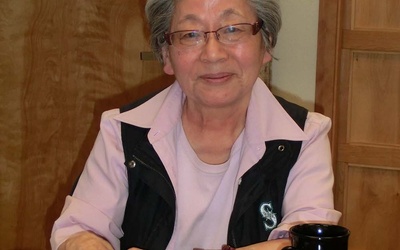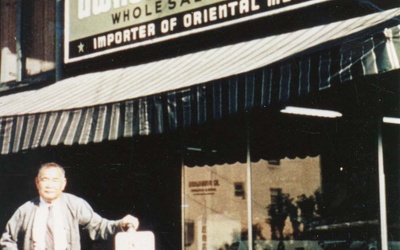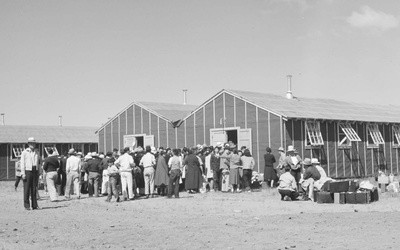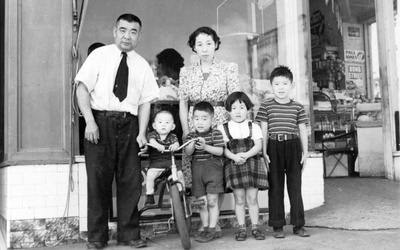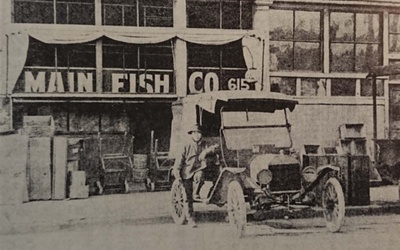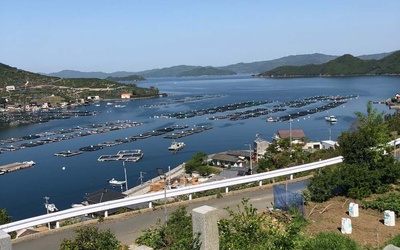The Uwajimaya Story
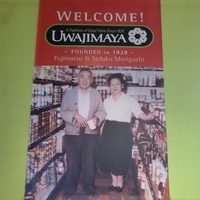
Uwajimaya is a food supermarket based in Seattle, Washington, USA, and is known to everyone. It started as a small family-run store in 1928 (Showa 3), and will celebrate its 90th anniversary in 2018. While many Japanese stores that once stood there have disappeared over the years, we explore the history and secrets of how the Moriguchi family has continued to grow and thrive.
Stories from this series
Part 15: Reconstruction and the eldest daughter's return to Japan
July 13, 2018 • Ryusuke Kawai
According to "A Hundred Years of Japanese Americans in the United States" (Shin Nichibei Shimbunsha, 1961), after the war, the Issei returned to Seattle and competed to buy hotels, apartments, and office buildings, developing businesses in ways other than the traditional leases. Various trades and businesses run by Japanese Americans were also revived. The following is a list of Japanese businesses in the city by type as of the end of 1948. 5 organizations, 16 churches, 19 clinics, dentists, opticians, …
Part 14: Reopening the store in Seattle after the war
June 22, 2018 • Ryusuke Kawai
During the war, ten Japanese-American internment camps were established in California, and in addition to the Japanese-Americans who were initially interned there for geographical reasons, those who were deemed to have no loyalty to the United States were later gathered there. On the other hand, those who were deemed to be loyal by the government were transferred to other internment camps. The issue of loyalty or disloyalty is difficult for many people to decide as individuals, and it is not …
Episode 13: The outbreak of war and the internment camps
June 8, 2018 • Ryusuke Kawai
Uwajimaya, run by Fujimatsu Moriguchi and Sadako, a married couple with three children, was always crowded with Japanese people, as it was a store. The children were loved and looked after by these adults, and they grew up in a life similar to that of a rural Japanese community. The reason people gathered there so easily was largely due to Sadako's kind personality, who would kindly look after any fellow Japanese person in need. Fujimatsu's younger brother, Saisuke, who was …
#12 Business in Tacoma
May 25, 2018 • Ryusuke Kawai
Located about 50 kilometers south of Seattle, the coastal city of Tacoma developed early on as a trading hub and industrial city. In 1907, the population reached 90,000. Moriguchi Fujimatsu opened his shop in 1928, but the number of Japanese people was at its peak in the 1920s, when it is said that there were about 1,600 Japanese residing in the city. Going back to 1885, it is said that Japanese people first left their mark in Tacoma, when a …
#11 Seattle to Tacoma
May 11, 2018 • Ryusuke Kawai
The main reason why Seattle and Tacoma in Washington state flourished as towns for Japanese immigrants was that, like San Francisco and Los Angeles, they were places where regular shipping routes from Japan were available. The first shipping route from Japan to North America was in 1896 (Meiji 29), when Nippon Yusen opened a regular route between Hong Kong, Japan, and Seattle. The Miike Maru departed Kobe on August 1 of that year, passing through Yokohama, and made an extra …
No. 10: Successful people from the same hometown as Roots
April 27, 2018 • Ryusuke Kawai
For Japanese people, if you want to trace your roots, the best thing to do is generally go to your local government office and look up your family register. If you have a family temple, you can also check the death registers that are kept by the temple, which are records of your ancestors. The graves of the Moriguchi family, the founding family of Uwajimaya, are kept at Gyohanji Temple (a Rinzai sect temple) in Yawatahama City, where records of …

